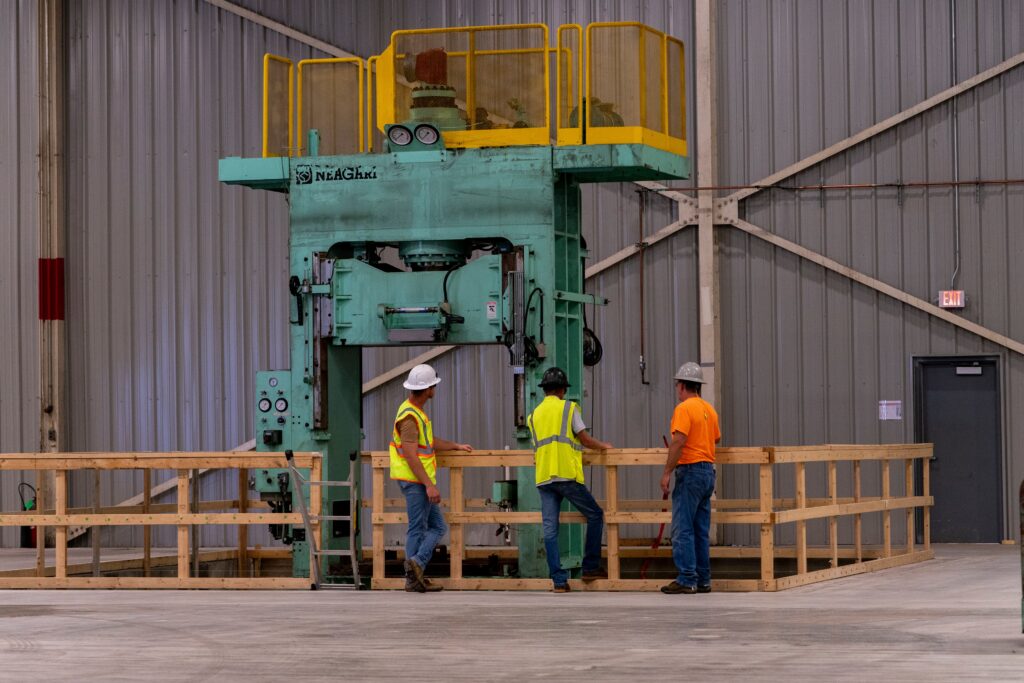Meg Reiss is the founder and CEO of SolidIntel, a company that uses generative AI to identify supply chain risks.
China’s apparent move to bar U.S. defense companies from acquiring rare earth magnets exposes the risks of allowing an adversary to maintain a choke point over the flow of a vital military resource. America urgently needs an alternative.
Under a proposed new “validated end-user” system reported by the Wall Street Journal this month, Beijing would allow exports of rare-earth magnets and other materials to civilian buyers while blocking them from reaching U.S. military suppliers. This was only the latest development in a years-long process that has resulted in Chinese control over 90 percent of global critical mineral processing. Over decades, Beijing has asserted dominance over every step of this process while U.S. manufacturers and policymakers have been asleep at the wheel.
Now, China is flexing all that rare earth muscle. In October, Beijing imposed sweeping export controls on processed critical minerals that are foundational to U.S. defense systems. This month, it suspended a subset of those controls, but it could reimpose them at any time. The point is unmistakable: Beijing holds leverage over the pace of U.S. defense production.
With China threatening to choke off access to the minerals, the United States needs to move rapidly to develop rare earth self-reliance.
Yet U.S. firms attempting to build processing capability and break China’s mineral dominance are hamstrung by onerous domestic regulations, including multi-year permitting delays and judicial reviews. The true obstacle is regulatory uncertainty, not environmental protection. When federal land or funding is involved, the National Environmental Policy Act (NEPA) can trigger a full Environmental Impact Statement, which typically takes more than two years. Both mining and processing take time, but processing could be built in just a few years with predictable regulatory timelines. Capital flees when reviews drag across agencies with no clear end.
This is not simply an economic vulnerability. It is a command-and-control vulnerability. The United States mines some minerals domestically but sends the majority of them to China for processing, then buys them back for use in our defense systems. When one nation controls the midstream, it also controls the tempo at which we can rebuild, repair and rearm. And in a conflict, resupply wins wars.
In any Indo-Pacific conflict, the systems that will matter most — drone platforms, the Golden Dome’s hypersonic defense systems, precision-guided munitions — require significant rare earth minerals. Victory depends on the ability to surge quantity to the front. The decisive question won’t be who has more exquisite systems on Day One, but who can replace and sustain those systems on Day 10, Day 100 and beyond.
The debate is not over whether to rebuild this capacity; it is about whether — and how — the United States can do it in time. Predictability of process is critical. Companies cannot build facilities and investors won’t commit capital with significant schedule ambiguity. Federal, state and local agencies should conduct environmental reviews concurrently, with known schedules. One obvious candidate for streamlining: Projects on existing industrial sites, such as refinery corridors and industrial manufacturing zones, should qualify for accelerated environmental reviews.
The courts have been a problem, too. Post-NEPA judicial reviews can delay projects by years, an unacceptable vulnerability for facilities supporting national defense. Fortunately, the administration’s March 2025 executive order in support of mineral production directs agencies to use Title III of the Defense Production Act to expand processing capacity. A Title III designation places a clear national defense need in the record, which courts have historically recognized when considering injunctions. Judicial reviews will still occur, but challenges are less likely to result in multi-year construction delays.
Rebuilding capacity also requires predictability across administrations. Here, Congress can provide an answer. Critical processing projects should not be rereviewed simply because a new administration arrives. To encourage durable decision-making, the Council on Environmental Quality, responsible for overseeing NEPA, should finalize guidance on accelerated reviews, and Congress should codify it to lock in stability.
Finally, predictability of capital is needed. Processing facilities require millions of dollars up front. That investment only happens if companies see a steady demand signal and trust that prices won’t be undercut by a foreign government, such as when Chinese-backed Indonesian nickel flooded markets and led to shuttered Australian production. Multi-year Pentagon procurement and placing minerals in the Defense Logistics Agency’s National Defense Stockpile can provide this confidence.
None of these adjustments would weaken environmental safeguards, but all of them would help build U.S. strategic capacity to support the warfighter.
The good news is that U.S. companies are already moving to redevelop critical mineral processing and manufacturing capacity. MP Materials is building U.S. rare earth separation and magnet manufacturing. Vulcan Elements and ReElements are expanding rare earth magnet production. New entrant Duranium is developing next-generation processing technology.
This is not about turning inward: America must build capacity with allies such as Australia. But no foreign government should ever be allowed control the pace of America’s defense readiness.
If the government acts now to cut red tape, the United States can rebuild processing capacity in three to five years. Delays are not administrative inconveniences. They are active strategic vulnerabilities. A major power does not ask for permission to secure its own defense.
The post China’s rare-earth dominance is secured by American red tape appeared first on Washington Post.




